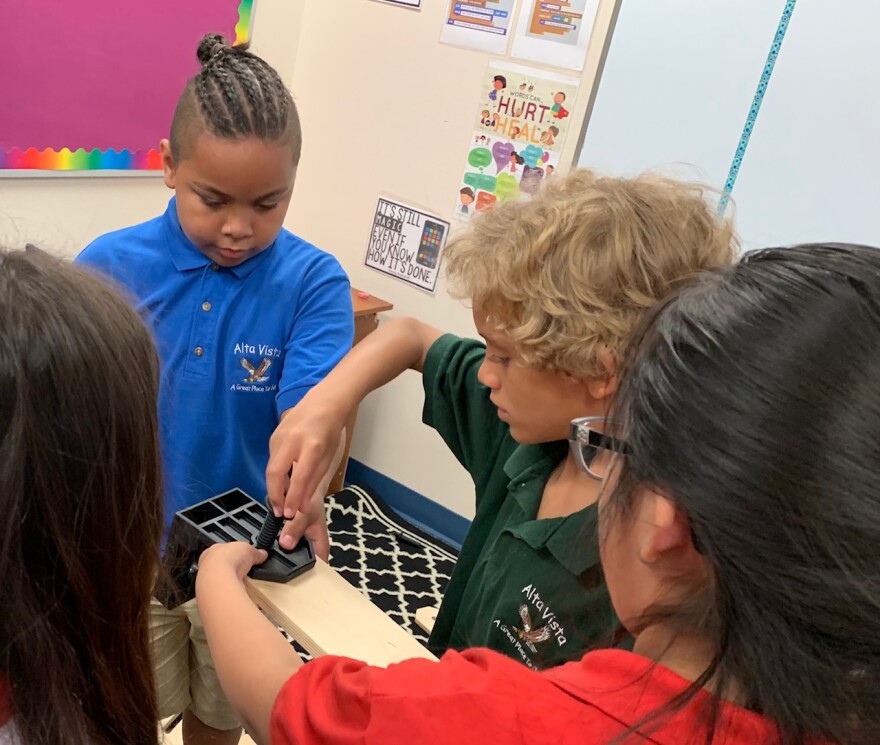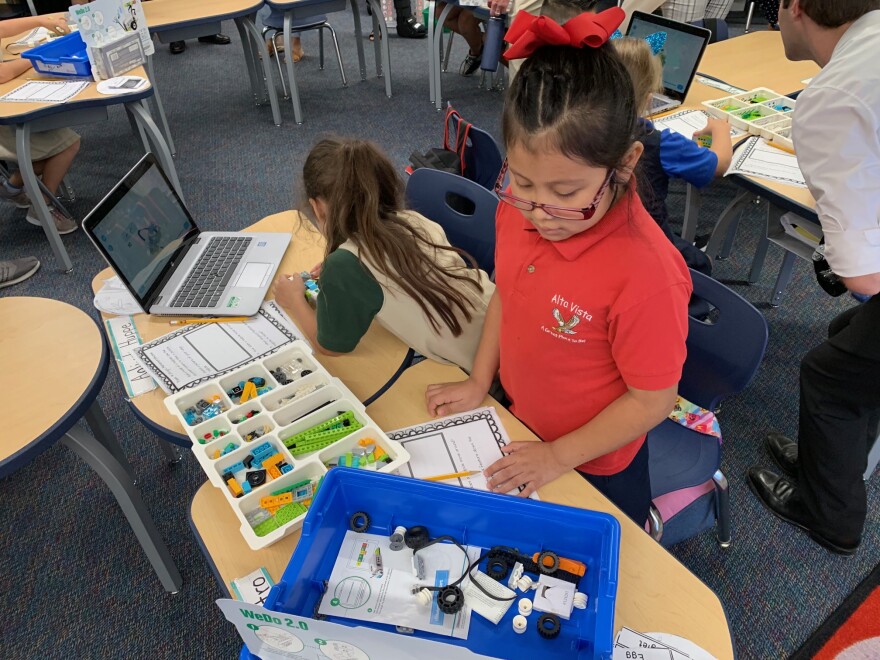In mid-July, eight third-graders sit cross-legged on the floor as they work intently on a math problem, using small eraser boards in their laps. Many are wearing their school uniforms, even though it's summer break.
They are part of a free elementary school program in Sarasota County, called Summer Learning Academies, that is trying to end what's known as "the summer slide," particularly among low-income kids.
The purpose is to keep children learning, so they don't lose knowledge over the summer and fall even further behind their wealthier peers.
Classes run all day for the first six weeks of the summer. And it's free for students from kindergarten all the way up to fourth grade.

"We get to build robotics, We have to do science, math missions, and usually we get to have fun," said fourth grader Olivia Schaelder-Luera, who, along with three classmates, is building a desk out of wood planks and rubber joints.
This program started at Alta Vista in 2012, and has grown. Now it is in 11 Sarasota County Title 1 schools, where most of the children come from low-income families.
"We try to keep it fun and have fun things that you don't get to do during the school year, like painting and shaving cream on the desks and playing with play-doh," said Amy Edelkind, who heads the Summer Learning Academy at nearby Tuttle Elementary.
"They are fun toys and fun things to do but they are tied to education. So, they read a story like "Rainbow Fish" and then they get to paint their own rainbow fish," she said.
Edelkind says enrollment doubled between last year and this year. Now, 200 students are enrolled at Tuttle. She'd like to see even more.

The class sizes are small, and there's room for more children. Money isn't an issue. It's just a matter of convincing parents that it's a good idea, Edelkind said. At first, many were reticent, but word of mouth has begun to spread.
In the beginning, funding came solely from the Community Foundation. Now, the district pays about $1.5 million for the academic portion and philanthropy pays for enrichment activities in the afternoon.
Officials estimate the total cost at $1.9 million. With 1,200 students enrolled, that boils down to about $1,500 per student.
The Community Foundation of Sarasota's Kirsten Russell says they fund it because they see a correlation with good scores on Florida Standards Assessments, or FSA tests.
"The first group of students who were incoming kindergarteners in 2012, when they took their FSA in third grade, if they had completed all four years of summer learning, they were proficient on their reading."
According to Kelsey Whealy, a spokeswoman for Sarasota County public schools, children who attend summer learning programs score higher on reading diagnostic tests, than peers who did not attend. According to district data:
- At the beginning of the school year, kindergarteners who attended the summer academies scored, on average, 8 points higher than their peers who did not attend
- At the beginning of the school year, 2nd graders who attended the summer academies scored, on average, 16 points higher than their peers who did not attend
- At the beginning of the school year, 3rd graders who attended the summer academies scored, on average, 15 points higher than their peers who did not attend
Back in the 1980s, when research first emerged about the summer slide, it was clear that low-income children lost more ground than wealthier peers in the summer.

Megan Kuhfeld, research scientist at the non-profit NWEA, formerly known as the Northwest Evaluation Association, in Oregon, says more recent research shows that this achievement gap also widens during the school year.
"But summer time is definitely a time where on average students are losing some ground so summer programs in reading and things like that during the summer can be really influential to help students stay on track for school the next year."
Sarasota Schools Superintendent Todd Bowden says he is not concerned about academic rigor in the summer program. He just wants kids there.
"It is one of the very few instructional programs that if you tell me at the end of the summer you didn't learn a thing but you didn't lose anything, I consider it a win because we get you back in August the way you left our schools in May."
Bowden says he hopes the program will continue to grow so all low-income students can go, if they want.







